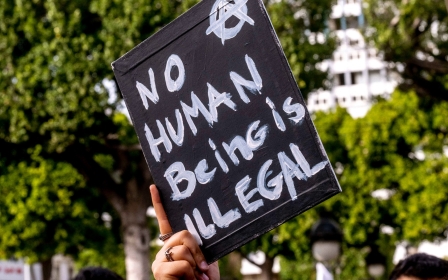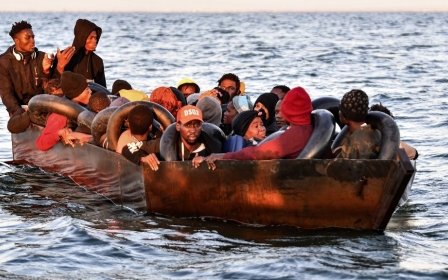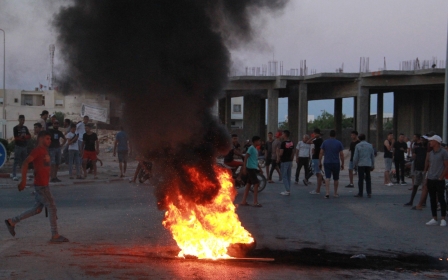Tunisian authorities involved in 'serious' migrant rights violations, HRW says

The Tunisian police, military, national guard, and coast guard have been involved in grave violations against Black African migrants, refugees, and asylum seekers, Human Rights Watch (HRW) said on Wednesday in a report.
Beatings, use of excessive force, some cases of torture, arbitrary arrests and detention, collective expulsions, dangerous actions at sea, forced evictions, and theft of money and belongings are all examples of documented abuses by HRW.
“Tunisian authorities have abused Black African foreigners, fueled racist and xenophobic attitudes, and forcibly returned people fleeing by boat who risk serious harm in Tunisia,” Lauren Seibert, a refugee and migrant rights researcher at HRW, said.
The report comes just a day after United Nations experts raised concerns about Tunisia’s alleged discriminatory treatment of sub-Saharan migrants. They strongly recommended the authorities act swiftly to halt mass deportations and safeguard the rights of every migrant.
“Collective expulsions are prohibited under international law,” the UN experts said.
Stay informed with MEE's newsletters
Sign up to get the latest alerts, insights and analysis, starting with Turkey Unpacked
“Deporting migrants, refugees and asylum-seekers without conducting an individual and objective risk assessment of their exposure to human rights violations upon return amounts to refoulement, prohibited under international human rights law.”
Since March, HRW interviewed 24 people, which included migrants, asylum seekers, and refugees. According to their report, 22 interviewees were victims of human rights violations at the hands of Tunisian authorities.
Fifteen people reported experiencing abuse at the hands of the police, military, or national guard, including the coast guard. Among these incidents, a refugee and an asylum seeker claimed they were physically assaulted and subjected to electric shocks by police while detained in Tunis.
Seven people who were interviewed said they were deported to border areas and that the military and national guard abandoned them in the desert without adequate food and water supplies.
At least nine people interviewed had been arbitrarily arrested and detained in Tunis, Ariana, and Sfax, where police profiled them based on their skin colour, the report said.
On 16 July, Tunisia and the European Union (EU) signed a "strategic partnership" deal that included combating human traffickers and tightening borders due to a sharp increase in boats leaving the North African nation for Europe.
The deal followed weeks of talks and Europe's pledge of major aid to Tunisia amounting to €1bn ($1.12bn) to help its battered economy, rescue state finances and deal with a migration crisis. Most funds are contingent on economic reforms.
According to HRW, the Memorandum of Understanding neglected to incorporate guarantees to ensure Tunisian officials would prohibit infringements on the rights of migrants and asylum seekers, and that the EU's financial or material contributions would not benefit organisations implicated in human rights abuses.
“By funding security forces who commit abuses during migration control, the EU shares responsibility for the suffering of migrants, refugees, and asylum seekers in Tunisia,” Seibert said.
Middle East Eye delivers independent and unrivalled coverage and analysis of the Middle East, North Africa and beyond. To learn more about republishing this content and the associated fees, please fill out this form. More about MEE can be found here.





